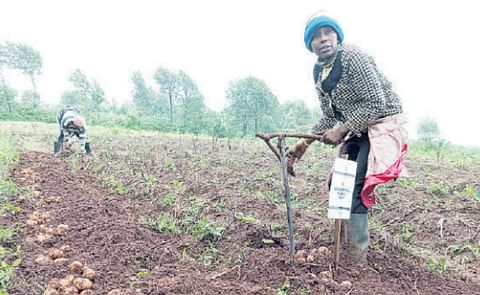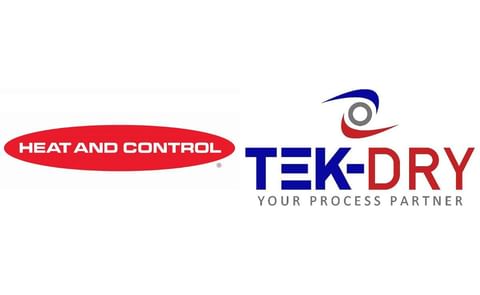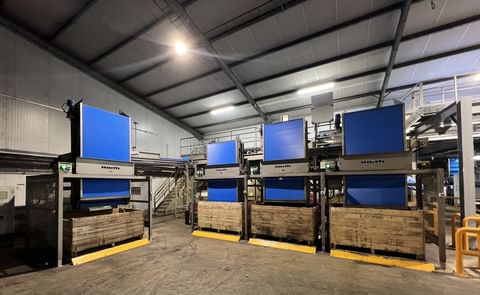North-western European Potato Growers (NEPG): Wet summer causes quality issues.
North-western European Potato Growers: Wet summer causes quality issues.

The Summer of 2021 is one of the most humid and difficult summers in the last decades!
North-western Europe will have had one of its most humid summers in the last decades! In some areas in Belgium and Western Germany, rainfall at mid-July was an absolute historic high.
Since mid-July, late blight problems have been a constant worry for growers, and spray costs will also be on a historic level… A growing number of producers say their late blight outbreaks are more or less under control but will one way or the other influences the season (lower net yields and/or quality issues).
Average yields and possible quality issues and storing difficulties
Global yields at the EU-04 level (NEPG zone) are expected to be roughly equal to those of last year i.e. 45 tonnes/ha and slightly above the 5-year average, There will be relatively important differences between gross and net yields. And there are still many uncertainties about the quality issues (rot, hollow hearts, cracks, low UWW in some cases), harvesting conditions, and storability.
The total production in the NEPG zone is expected to be around 22,4 million tonnes (produced on an area of 497.700 ha). It’s less than last year, mainly due to reduced planted area (thanks partly to the NEPG call), and similar to the 5-year average.
Higher prices for raw materials and different crops, i.e. cereals, could influence the potato!
Growing potatoes is an ever more expensive business (above average spray costs 2021, higher energy costs for storage 2021-2022…), and will continue to be so. Higher prices for cereals and rapeseed, combined with greater potato production costs could influence the 2022 potato area.
Covid-19 is still an issue but good ongoing sales and export of processed products
The worldwide pandemic due to Covid-19 is still ongoing and will still be weighing on potato markets and sales of processed products throughout the coming marketing season. Nobody knows what the influence of the developing ∆ variant (and others to come) will have on global trade and markets.
Nevertheless, since the end of spring and throughout the summer, processors have been working at full capacity. EU-27 exports (i.e. outside the Union) were very good in June (+ 63% compared to June 2020).
Total sales of European processed potato products were up by NEPG Press release - Communiqué de Presse NEPG – 03/09/2021 13% comparing season 2020/21 with the 2019/20 one. There were big variations of destinations and volumes exported during this last 12 months period.
Due to the very hot and dry summer in Southern Europe, North Africa, and the near East, exports of fresh potatoes to the Mediterranean basin and possibly to eastern Europe could be good.
North-western Europe will have had one of its most humid summers in the last decades! In some areas in Belgium and Western Germany, rainfall at mid-July was an absolute historic high.
Since mid-July, late blight problems have been a constant worry for growers, and spray costs will also be on a historic level… A growing number of producers say their late blight outbreaks are more or less under control but will one way or the other influences the season (lower net yields and/or quality issues).
Average yields and possible quality issues and storing difficulties
Global yields at the EU-04 level (NEPG zone) are expected to be roughly equal to those of last year i.e. 45 tonnes/ha and slightly above the 5-year average, There will be relatively important differences between gross and net yields. And there are still many uncertainties about the quality issues (rot, hollow hearts, cracks, low UWW in some cases), harvesting conditions, and storability.
The total production in the NEPG zone is expected to be around 22,4 million tonnes (produced on an area of 497.700 ha). It’s less than last year, mainly due to reduced planted area (thanks partly to the NEPG call), and similar to the 5-year average.
Higher prices for raw materials and different crops, i.e. cereals, could influence the potato!
Growing potatoes is an ever more expensive business (above average spray costs 2021, higher energy costs for storage 2021-2022…), and will continue to be so. Higher prices for cereals and rapeseed, combined with greater potato production costs could influence the 2022 potato area.
Covid-19 is still an issue but good ongoing sales and export of processed products
The worldwide pandemic due to Covid-19 is still ongoing and will still be weighing on potato markets and sales of processed products throughout the coming marketing season. Nobody knows what the influence of the developing ∆ variant (and others to come) will have on global trade and markets.
Nevertheless, since the end of spring and throughout the summer, processors have been working at full capacity. EU-27 exports (i.e. outside the Union) were very good in June (+ 63% compared to June 2020).
Total sales of European processed potato products were up by NEPG Press release - Communiqué de Presse NEPG – 03/09/2021 13% comparing season 2020/21 with the 2019/20 one. There were big variations of destinations and volumes exported during this last 12 months period.
Due to the very hot and dry summer in Southern Europe, North Africa, and the near East, exports of fresh potatoes to the Mediterranean basin and possibly to eastern Europe could be good.
Like to receive news like this by email? Join and Subscribe!
NEW! Join Our BlueSky Channel for regular updates!
Uitgelichte Bedrijven
Sponsored Content
Sponsored Content
Sponsored Content
Sponsored Content
Sponsored Content








